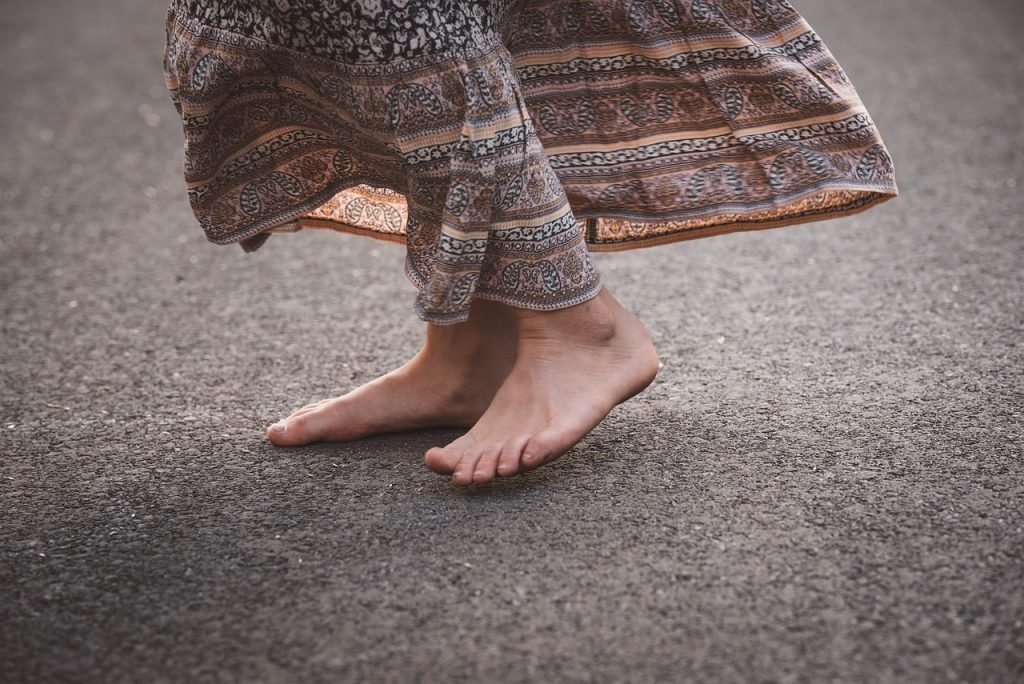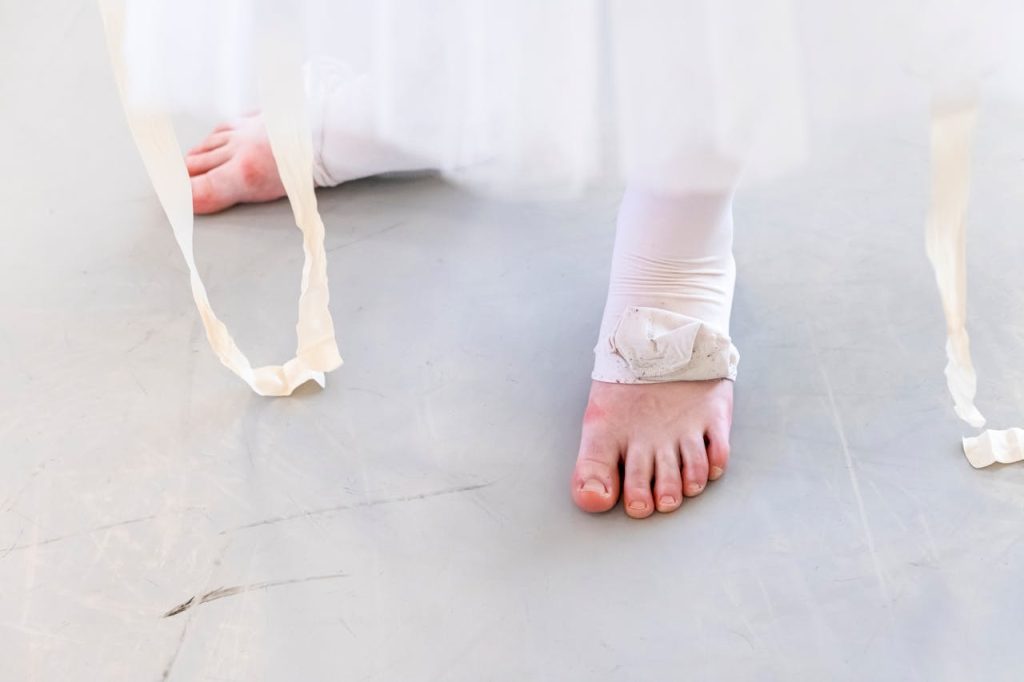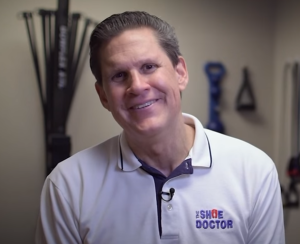Overpronation, a common biomechanical issue, occurs when the foot rolls inward excessively during walking or running. This misalignment can lead to a host of problems, including foot pain, lower body discomfort, and frequent injuries. For many individuals, custom orthotics offer a tailored solution to alleviate the strain caused by overpronation, providing necessary support and promoting proper foot alignment.
Recognizing the need for custom orthotics can be crucial in preventing long-term damage and enhancing overall comfort and mobility. This article will explore the top five signs indicating that you might need custom orthotics for overpronation relief. From persistent foot pain and unusual wear patterns on shoes to recurrent injuries and lower body pain, these indicators can help you determine whether custom orthotics are the right choice for your foot health needs.
1. Persistent Foot Pain
Persistent foot pain is one of the most telling signs that you might need custom orthotics for overpronation relief. This type of pain often manifests in the arches, heels, or balls of the feet, areas that bear the brunt of the misalignment. When the foot rolls inward excessively, it alters the natural distribution of weight and pressure, leading to strain and discomfort. Over time, this can cause chronic pain that over-the-counter insoles or general pain relief methods fail to alleviate. Custom orthotics are designed specifically to address the unique contours and needs of your feet, providing targeted support where it is needed most.
The pain from overpronation can be particularly stubborn, refusing to subside even with rest or basic foot care routines. Activities that involve prolonged standing, walking, or running can exacerbate the discomfort, making daily tasks and exercise increasingly challenging. In severe cases, the pain can become debilitating, significantly impacting your quality of life. Custom orthotics work by correcting the underlying biomechanical issues, redistributing pressure more evenly across the foot, and thereby reducing the strain on specific areas. This tailored support helps in alleviating pain and preventing further damage.
Ignoring persistent foot pain can lead to more serious complications. Overpronation not only affects the feet but can also cause problems in other parts of the body, such as the ankles, knees, hips, and lower back. The continuous stress and misalignment can contribute to the development of conditions like plantar fasciitis, Achilles tendonitis, and shin splints. By addressing the root cause with custom orthotics, you can not only relieve existing pain but also prevent the onset of additional injuries. Consulting a podiatrist to get custom orthotics made can be a pivotal step towards long-term foot health and overall well-being.
2. Unusual Wear Patterns On Shoes
Unusual wear patterns on your shoes are a clear indicator of overpronation and the potential need for custom orthotics. Overpronation causes the foot to roll inward excessively during movement, leading to uneven distribution of weight across the foot. This results in specific areas of your shoes, typically the inner edges, wearing out more quickly than others. By examining the soles of your shoes, you can often see these patterns, which serve as a visual clue to the misalignment in your gait.
These wear patterns develop because overpronation alters the natural motion of your feet, causing abnormal stress on certain parts of your footwear. If you notice that the insides of your shoes are significantly more worn down compared to other areas, it’s a sign that your feet are not striking the ground properly. This uneven wear not only shortens the lifespan of your shoes but also indicates that your feet are enduring extra stress, which can lead to discomfort and injury over time. Custom orthotics can help by providing the necessary support and correction to your foot structure, ensuring a more even distribution of weight and pressure.
Addressing these wear patterns with custom orthotics can prevent further damage to both your shoes and your feet. Orthotics are designed to correct the alignment of your feet, promoting a more natural and efficient gait. By supporting the arch and controlling the inward roll of the foot, custom orthotics help distribute your body weight more evenly. This not only reduces the unusual wear on your shoes but also minimizes the risk of developing foot pain and related injuries. Investing in custom orthotics tailored to your specific needs can be a crucial step in maintaining foot health and improving overall comfort in your daily activities.
3. Frequent Injuries
Frequent injuries are a significant sign that you might need custom orthotics to manage overpronation. Overpronation disrupts the natural alignment and function of your feet, which can lead to repetitive stress injuries in the feet, ankles, knees, and even hips. Common injuries associated with overpronation include shin splints, plantar fasciitis, Achilles tendonitis, and knee pain. These injuries occur because the excessive inward rolling of the foot places undue stress on various structures within the lower body, leading to inflammation, micro-tears, and chronic pain.
Recurrent injuries can severely impact your daily activities and athletic performance. For athletes, overpronation can be particularly problematic, as the repetitive motions involved in running, jumping, and other high-impact activities can exacerbate the misalignment and increase the risk of injury. Even for non-athletes, frequent injuries can make simple tasks like walking, climbing stairs, or standing for extended periods uncomfortable and difficult. Custom orthotics are specifically designed to correct the abnormal foot mechanics caused by overpronation, providing support that can help prevent these repetitive injuries.
By addressing the root cause of overpronation with custom orthotics, you can break the cycle of frequent injuries. Orthotics work by realigning the foot to its natural position, thereby reducing the stress on the muscles, tendons, and ligaments throughout the lower body. This corrective support helps distribute pressure more evenly and enhances shock absorption, which can significantly lower the risk of injury. Additionally, with the proper alignment and support, your body can move more efficiently, reducing fatigue and improving overall performance. Consulting with a healthcare professional to obtain custom orthotics can be a crucial step in managing overpronation and maintaining long-term health and mobility.

4. Flat Feet Or Low Arches
Flat feet or low arches are a common sign that you might need custom orthotics to address overpronation. Individuals with flat feet lack the natural arch that helps distribute weight across the foot during movement. Without this arch, the foot tends to roll inward excessively when walking or running, leading to overpronation. This misalignment can cause discomfort and increase the likelihood of developing other foot-related issues, such as plantar fasciitis and tendonitis.
People with flat feet or low arches often experience discomfort not just in their feet, but also in their ankles, knees, hips, and lower back. The lack of arch support means the body’s weight is not properly balanced, causing additional stress on these joints. This can result in pain and fatigue, especially after prolonged periods of standing or physical activity. Custom orthotics can provide the necessary arch support to correct this imbalance, helping to realign the foot and reduce the strain on other parts of the body.
Custom orthotics are designed to fit the unique contours of your feet, offering personalized support that generic insoles cannot match. For individuals with flat feet or low arches, custom orthotics can create an artificial arch that supports proper foot alignment and function. This not only alleviates the symptoms associated with overpronation but also helps prevent future problems by promoting a healthier gait. By investing in custom orthotics, you can improve your overall foot health, enhance comfort, and maintain better alignment throughout your entire body.
5. Lower Body Pain
Lower body pain is another significant indicator that you might need custom orthotics to manage overpronation. When your feet roll inward excessively, it can cause a chain reaction of misalignment throughout your lower body. This misalignment puts additional stress on the ankles, knees, hips, and lower back, leading to persistent pain and discomfort. The pain can range from mild to severe and can affect your ability to perform everyday activities or engage in physical exercise.
The mechanics of overpronation result in uneven weight distribution and improper shock absorption, which contributes to the strain on your lower body joints. For instance, the inward roll of the foot can cause the knee to rotate inward as well, increasing the risk of knee injuries and conditions such as patellar tendonitis or iliotibial band syndrome. Similarly, the misalignment can lead to hip and lower back pain as your body compensates for the faulty foot mechanics. Custom orthotics can help address these issues by providing the necessary support to align your feet properly, which in turn promotes better posture and reduces stress on your lower body.
By using custom orthotics, you can significantly alleviate lower body pain associated with overpronation. These orthotics are tailored to your specific foot structure, ensuring that your feet are supported in the correct position. This support helps to distribute pressure more evenly across your feet, reducing the strain on your ankles, knees, hips, and back. As a result, you can experience relief from chronic pain and improve your overall mobility and comfort. Consulting with a healthcare professional to obtain custom orthotics can be a crucial step in addressing lower body pain and enhancing your quality of life.
Final Thoughts
Recognizing the signs of overpronation is essential for maintaining foot health and overall well-being. Persistent foot pain, unusual wear patterns on shoes, frequent injuries, flat feet or low arches, and lower body pain are clear indicators that you might benefit from custom orthotics. These specially designed supports address the unique needs of your feet, providing proper alignment and alleviating the strain caused by overpronation. By investing in custom orthotics, you can significantly reduce discomfort, prevent further injuries, and enhance your overall mobility and quality of life. Consulting a podiatrist or orthopedic specialist is a crucial step towards achieving long-term relief and optimal foot health.
Improve Your Mobility With Custom Orthotics For Overpronation Relief!
Struggling with overpronation can severely limit your mobility and lead to discomfort and pain. If you’re seeking effective relief, custom orthotics tailored specifically for overpronation, coupled with expert guidance, can make a world of difference. These orthotics not only alleviate pain but also enhance mobility and prevent further strain on your feet.
The Shoe Doctor, boasting over two decades of experience, specializes in crafting custom orthotics designed to support individuals dealing with overpronation. Our goal is to provide orthotic solutions that not only relieve pain but also promote foot health and ensure stability throughout your daily activities. Our specialists are dedicated to delivering personalized care, ensuring that each orthotic is meticulously fitted to cater to your individual requirements.
Utilizing cutting-edge technology, we generate precise 3D foot scans, allowing us to create custom orthotics that seamlessly integrate with your everyday shoes. Embark on the journey towards improved mobility today. If you reside in the South San Francisco Bay Area, The Shoe Doctor is your go-to destination for tackling discomfort associated with overpronation. We’re here to guide you every step of the way, starting with a complimentary initial consultation to kickstart your path to relief and enhanced mobility. Schedule your consultation now!
Disclaimer
The materials available on this website are for informational and entertainment purposes only and not to provide medical advice. You should contact your doctor to obtain advice concerning any particular issue or problem. You should not act or refrain from acting based on any content included in this site without seeking medical or other professional advice. The information presented on this website may not reflect the most current medical developments. No action should be taken in reliance on the information contained on this website and we disclaim all liability for actions taken or not taken based on any or all of the contents of this site to the fullest extent permitted by law.


